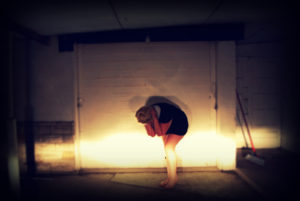 Obsessive Compulsive Disorder (OCD) symptoms are straightforward in some regards; however, these symptoms can be confusing to those that do not understand that this is an illness. These misunderstood symptoms affect both the person with the disorder as well as those who are close to the person with OCD.
Obsessive Compulsive Disorder (OCD) symptoms are straightforward in some regards; however, these symptoms can be confusing to those that do not understand that this is an illness. These misunderstood symptoms affect both the person with the disorder as well as those who are close to the person with OCD.
At Santa Monica Christian Counseling, we provide faith-based guidance to help you through your particular situation. The team of professional counselors in Santa Monica offers every person that we meet compassion and tenderness.
We patiently walk you through your journey to healing and freedom. We want you to know that your well-being is of the utmost importance to us. If you have been diagnosed with OCD or suspect you have the disorder, please don’t wait to get help.
Contact a counselor today by calling (424) 361-6197 or take a look at our counselor directory. We offer a risk-free session for your first appointment.
What Exactly Is Obsessive Compulsive Disorder?
The Mayo Clinic, a trusted source, defines OCD as “ a pattern of unreasonable thoughts and fears (obsessions) that lead you to do repetitive behaviors (compulsions). These obsessions and compulsions interfere with daily activities and cause significant stress. “
A person with OCD will exhibit symptoms in the form of being completely focused on a behavior, a thought, an urge, or a habit. Through the obsession, the person thinks of nothing else and their entire life is centered around the behavior, thought, urge, or habit.
 As the obsession continues to become more acute within the individual, it becomes a compulsion. The compulsion is all consuming for the individual and he/she must perform the behavior or habit on a highly repetitive basis.
As the obsession continues to become more acute within the individual, it becomes a compulsion. The compulsion is all consuming for the individual and he/she must perform the behavior or habit on a highly repetitive basis.
If the person is forced to be distracted away from their obsession or compulsion, they will experience a significant increase in anxiety and stress. The opposite is also true, in that when a person is able to focus on the obsession or perform their compulsion, they find relief and comfort from the anxiety and stress and can relax to a certain degree.
Clinically, OCD symptoms typically fall along these following lines:
- obsessive thoughts that are well beyond the normal realm of thinking on specific subjects
- extreme fears of hurting those around them and/or fears of hurting themselves
- extreme fears of germs, contamination from surfaces, air, water, or other substances
- thoughts that are repulsive, such as those that are horrific in nature
- extreme needs of having their lives be orderly and perfect in their mind
These symptoms are exhibited in the behavior, thoughts, urges, and habits of the person with OCD and to the degree that they become a compulsion.
 To explain OCD further, it is helpful to compare the thought processes of a non-disordered person with someone who has been diagnosed with or suspects he/she has OCD.
To explain OCD further, it is helpful to compare the thought processes of a non-disordered person with someone who has been diagnosed with or suspects he/she has OCD.
A “normal” person may like a clean and orderly house. The home gets a once a week cleaning, including vacuuming, dusting, mopping, etc. and the home stays tidy with everything neatly put away in its place.
On the other hand, a person with OCD may become obsessed with a clean and orderly house and will do a thorough cleaning every day as well as rearrange an already tidy house on a daily basis. If that OCD person is prevented from doing this daily routine, he/she will often become very stressed and agitated.
Another common example is the washing of one’s hands. A “normal” person will wash his/her hands when needed such as after going to the restroom. An OCD person, however, will wash their hands many times a day, even when they just washed them ten minutes ago and have done nothing to warrant washing again so soon.
How are OCD Symptoms Misunderstood?
One of the original misconceptions about OCD actually has nothing to do with symptoms. The challenge was that the disorder was not diagnosed as a mental illness. It is only in the twenty-first century that OCD was officially classified as an illness, with the result being treatment or management plans established.
As for misunderstanding of the classical symptoms, the most common mistake many people make is the distinction between someone who merely likes or enjoys something and someone who thinks about that same thing all day, every day and/or must continually perform the compulsion.
Returning to our example of hand washing, the “normal” person is choosing to wash his/her hands due to the need to do so; however, the OCD individual is compelled, almost mentally forced, to wash the hands even when not warranted.
This is the distinction between a “normal” person and an OCD person; one chooses to wash his/her hands due to the need while the OCD person feels he/she must continually wash the hands and not being able to do creates considerable stress and anxiety.
 Another misunderstood concept is that people with OCD do not have the ability to stop their obsession/compulsion. A normal person will be able to think logically about a certain concept, such as hand washing. If they need to wash their hands, they do so.
Another misunderstood concept is that people with OCD do not have the ability to stop their obsession/compulsion. A normal person will be able to think logically about a certain concept, such as hand washing. If they need to wash their hands, they do so.
On the other hand, an OCD person does not have the ability to separate the need to wash their hands from the overwhelming compulsion to wash. For those that do not have OCD, they often cannot relate and might say to the OCD individual, “Why don’t you just stop the obsession?” or “How can you be obsessed with hand washing?” The non OCD person cannot understand that the OCD person performs their compulsion or has their obsession involuntarily.
From the perspective of the person who suspects he/she has OCD, it may be helpful to recognize that it is an illness that is treatable and while there are no known causes or cures, the condition can be managed. As for those who are dealing with someone who has OCD, realizing that the person has an illness and that they simply cannot control it on their own may bring understanding.
What Should I Do If I Have Obsessive Compulsive Disorder?
One of the first steps could be to do some research on the internet. A Google search will give several websites that will describe the symptoms and treatments. Additionally, seek the help of a mental health profession, primarily one who specializes in OCD. And very importantly, find healing from a faith-based professional Christian counselor.
There is help for persons with Obsessive Compulsive Disorder; this illness does need to be endured alone. At Santa Monica Christian Counseling, we are here to help you in your journey of managing OCD. Find out more about our Christian counseling services or schedule your first risk-free session by contacting us at (424) 361-6197 or click here to contact us online.
“Day 021” Courtesy of Holly Lay, Flickr.com, CC BY 2.0 License; “Venetian Blinds”, Courtesy of Sheila Tostes, Flickr.com, CC BY 2.0 License; “Tablet Time”, Courtesy of Annie Spratt, Unsplash.com, CC0 License; “Knowledge is Power”, Courtesy of Geralt, Pixabay.com, CC0 License


